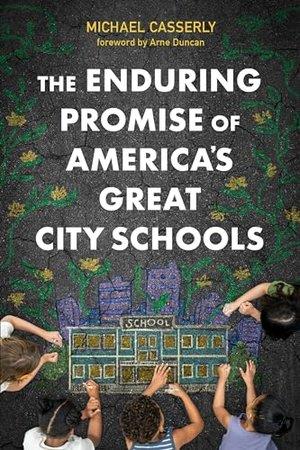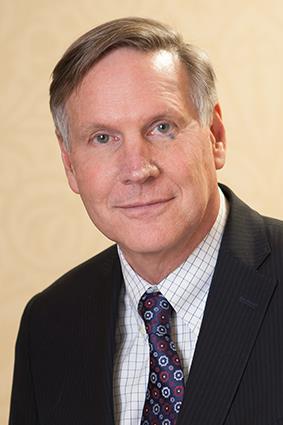- Council of the Great City Schools
- Former Council Leader’s New Book Charts a Path for Urban Education
Digital Urban Educator - October 2024
Page Navigation
- Finalists Named for the 2024 Urban Educator of the Year
- Students to Speak Out Ahead of Elections at Council Town Hall
- San Francisco Keeps Superintendent; NYC, Louisville, and Fort Worth Chiefs Departing
- Former Council Leader’s New Book Charts a Path for Urban Education
- Education Secretary Names Blue Ribbon Schools
- Q&A with Cecilia Oakeley, Deputy Chief of Evaluation and Assessment, Dallas ISD
Former Council Leader’s New Book Charts a Path for Urban Education
-
Michael Casserly served as executive director of the Council of the Great City Schools for nearly 30 years before stepping down in June 2021. He has used his experience and the knowledge gained from three decades leading the only national organization representing big-city schools to write a sweeping account of urban education in the modern era, told in his new book, The Enduring Promise of America’s Great City Schools.

Casserly, now strategic advisor to the Council, wrote on LinkedIn that the book “describes how and why some city school systems make more academic progress than others, and it lays out a path forward for urban public education.”
The book is published by Harvard Education Press and includes a foreword by former U.S. Secretary of Education Arne Duncan.
The publisher notes that “Casserly leaves readers with thoughts on organizational change in the wake of declining enrollment and funding, among other challenges in education, confident that urban districts will continue to be architects of their own improvement.”
In a videotaped interview sponsored by Harvard’s Gutman Library, Casserly said he hoped the book conveys “a sense of optimism ... about the focus, the determination, the skills of people who are running our public education systems in our major cities.”

The current challenge in urban education, Casserly said, “is to make sure we transition from that period of crisis management [during the Covid-19 pandemic] to a period of instructional improvement.”
The book opens with a robust argument for urban public education and the contributions it has made to America and our democracy. It then pivots to the improvements that urban public schools made over the twenty years before the pandemic, the historic context for that improvement, and why some districts made more improvement than others.
From there, Casserly turns to the pandemic and lets the reader listen in on the weekly calls that urban school leaders had over the first two years of the outbreak; describes the price that urban schools and their children paid over the period, presents preliminary and hopeful data on recovery, describes lessons learned, and offers recommendations for moving forward.
He concludes that one of the “lessons learned” during the two decades prior to the pandemic was that “focus and attention on academic performance actually matters.”
An early review of the book by Kirkus Reviews said Casserly “delivers a persuasive argument for supporting public education against its many discontents, always with an eye on what’s best for the children being served.” The review said the book will be “of most interest to fellow education activists, but with plenty of useful rebuttals to the anti-public school crowd.”
In 2023, the Council launched the Michael Casserly Urban Executive Leadership Institute for Superintendents, an urban superintendent preparation program by utilizing many of the artifacts and lessons learned from the book to prepare the next generation of urban school leaders.
Media Contact:
Contact Name
Contact@email.com
(000) 000-0000
Contact Name
Contact@email.com
(000) 000-0000
Contact Name
Contact@email.com
(000) 000-0000
Media Contact:
Contact Name
Contact@email.com
(000) 000-0000
Contact Name
Contact@email.com
(000) 000-0000
Contact Name
Contact@email.com
(000) 000-0000


